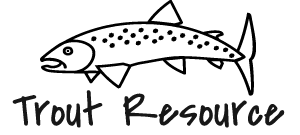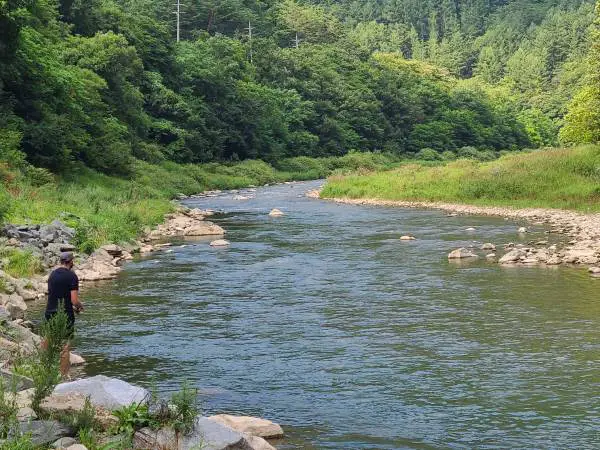I have little problem sharing fishing spots and I have even shared a few on this site. Might have even made a few enemies in the process but I do not believe doing so risks the health of the fisheries, and in some cases, they might even be better of for it.
Exposure can protect fisheries
In the minds of most trout fishermen, trout seem to like the most perfect fish in the world, and we will do anything to protect them and the health of their water.
In reality, fishermen are in the minority, and there is an endless and growing demand for the water where the trout live. Where we see a healthy trout stream, others see irrigation for orchards, crops, or water for cities and industries.
It is up to the local government, to balance the need for the environment, recreation, and industries.
I have sat through many meetings discussing water allocations, and to the bureaucrats, everything just comes down to numbers. They were quoting figures like, “according to our river use survey, it is fished by less than one angler per week over the summer period, so it holds comparatively little recreational value.”
In the eyes of local officials, a busy fishery is worth protecting. An unknown one is more likely to be sacrificed to fuel the endless demand for additional water sources.
The reach of social media is overstated
99% of trout rivers are already well publicized.
I have never seen any coloration between social media shares and fishing pressure. It takes months and years of consistent exposure for a spot to become famous and crowded not just one youtube video or careless photos on Instagram.
I doubt any website, social media post, or magazine article has enough reach to significantly impact the quality of any fishery. So while a post might get hundreds, sometimes thousands of views. The vast majority of readers will never be in a position to take advantage of that knowledge. And for anyone local enough to fish it, chances are they already aware of the spot.
Plus in this day of social media, there is simply so much information available that spots and catches go in one ear and out the other. The internet is information overload. I personally have a list of several hundred spots I am keen to check out, but in reality, I will be lucky to fish a dozen of them.
There is no such thing as a secret spot
Over the years taking part in many online communities I have seen countless people upset about spots being shared and have read many arguments for and against them. The reality is, there is no such thing as a secret spot anymore. Your secret honey hole is already being fished by many other anglers, and if that is not the case your spot is likely so inaccessible that the internet crowd is not going to flock there anyway.
Just out of interest, I threw the name of my local river into google, on the front page there were half a dozen articles singing its praises, including publications with international reach. It is still only fished regularly by a handful of locals.
I share spots to help new anglers who are the future of our sport, and who in turn will become protectors of the fishery. I take great pleasure and I find it very rewarding to share my knowledge of trout fishing to new anglers. If that means sharing a few spots, I am going to share them. It is not going to ruin the recreational value of the sport for me.
Spot burning is hard
About a decade ago, I set out with the aim to deliberately spot-burn a local river. I wanted to see if it was possible with enough online hype to convince others to visit an unknown stream.
The stream I chose is nothing special. Just a small freestone tributary that flows into a more major fishery. The middle stretches go dry during the summer months but the headwaters are always wet even in the driest of summers.
It holds a few wild brown trout, the largest I caught was 3lb. It flows near my childhood home and I use to swim in it as a child. I know the stream well.
Prior to my publicity, I have never seen an angler on it, I wanted to see if I could change that.
So I started to fish it, I uploaded photos and named dropped it every chance I got on social media and large forums. The highlight of my effort was when it got listed in the local regulation booklet. It now has a max size and catch limit.
So is my local stream now crowded?
Did I ruin a once virgin and untouched fishery? Ummm No. Despite my best efforts. I still have not seen another angler on it. They still all head to the main river nearby. In my experience, it is extremely hard to make a spot famous and to spot burn.
Okay, I am sure I will hear arguments that the reason why the local stream did not receive any attention is due to its rural location, it is not within a short drive of a major metropolitan center. While this is true, I will also counter it by saying that there is no such thing as a secret stream or pond within an hour’s drive of a major city.
Such waters have all been well explored, documented, and fished over. The closer to a city you live, the more pressure all the fisheries receive. It is only the out of the way places, that maintain some resemblance of secrecy.
Three situations where I do not spot burn.
In general, I do not believe spot burning is damaging to the health of a fishery. But, there are some situations where I refrain from spot burning.
Sharing the location does not always share the spot
There is more to a honey hole than just the location. There is also knowing how to fish it. What tactics work best? How deep do the trout hold? what time of year? There are so many variables beyond just the physical coordinates that make a spot special.
I often share spots, will in the knowledge that anyone who fishes it still has a massive challenge ahead of them to figure out all of the secrets.
When I was new to fishing I was struggling to catch fish so a mate shared with me a spot where he has had some success.
Well, I started fishing it. I had luck, I then started to catch more than a few trophy fish. I posted photos online but made sure to hide the background. It was not my spot after all.
A few weeks later we bumped into each other again. He asked me about the fishing and congratulated me on my catches and asked where I caught them. He did not believe me when I said his spot.
The difference was, we both were fishing there at different times of day and using different techniques. He use to fish during the day, and I usually fished there after work and fished late into the night. So we experienced two very different fisheries.
Until he shared the spot with me, he had no idea there was trophy worthy trout patrolling the shoreline late into the night.
So sharing a spot is one thing, but sharing how to fish a spot can be just as important.

